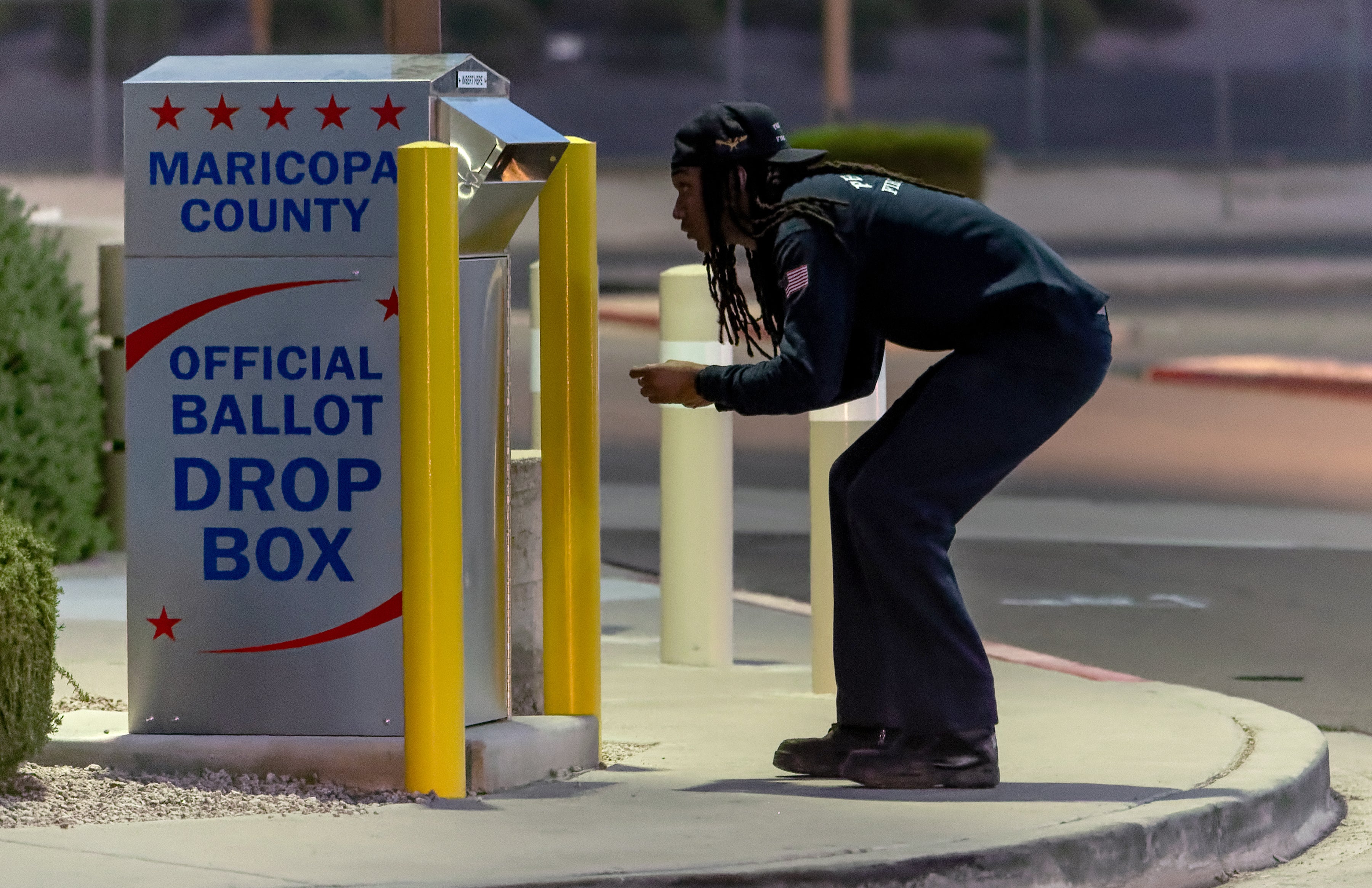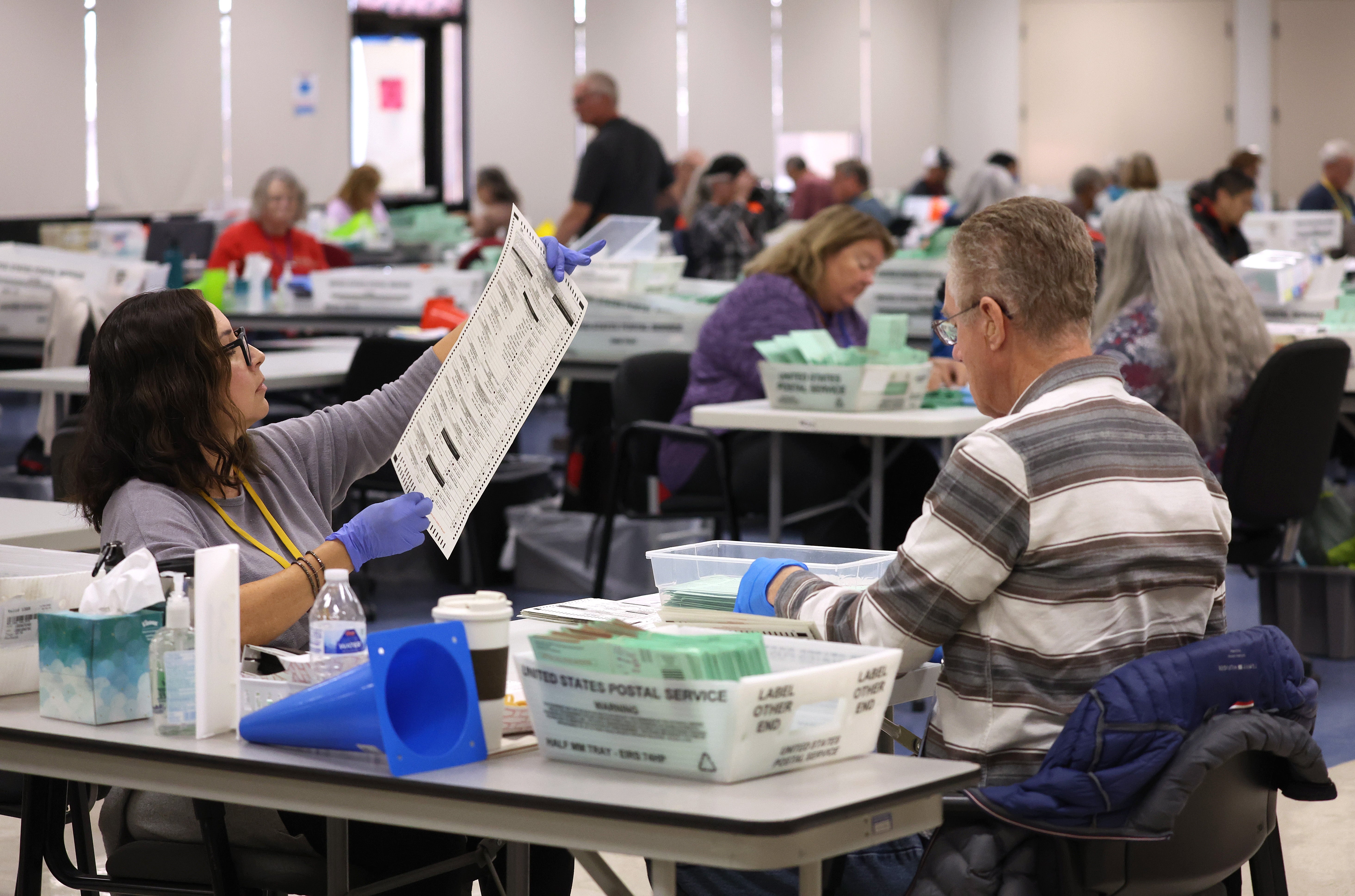Supreme Court grants RNC request to reinstate Arizona voter ID law requiring proof of citizenship
New law will require people registering to vote through a state form to provide proof of their citizenship

The Supreme Court handed the Republican National Committee a partial win on Thursday, granting their request to reinstate an Arizona voter ID law that requires new voters to prove their citizenship when using a state form.
“Huge win for the integrity of elections,” the GOP wrote on X in response to the ruling.
However, the court denied the portion of the RNC’s request to prohibit voters from participating in the presidential election or by mail unless they provide proof of citizenship.
The RNC’s request emerged from a dispute over the 2022 Arizona law that would have required county officials to verify any person registering to vote via a federal form or state form is a US citizen. That means new voters would need to include their birth certificate or passport.
A group of plaintiffs including voting rights groups, Democrats and the government challenged the law arguing that the National Voting Registration Act overrides the 2022 law.

Citing a 2013 precedent, the government said, “A State violates the Act by rejecting a federal form on the ground that the voter failed to submit documentary proof of citizenship along with it. The Act thus preempts Arizona’s requirement that voters who register with the federal form submit documentary proof in order to vote for President or vote by mail.”
A district court sided with the plaintiffs but the Ninth Circuit Court of Appeals issued a partial ruling in favor of the RNC – allowing the voter ID requirement for state voting registrations to move forward.
Among the GOP’s arguments included raising concerns over the Purcell principle – a precedent that states courts should not change election results too close to an election because it can be confusing.
The RNC asked the Supreme Court to issue a decision before August 22.
The 5-4 decision arrived in the form of an unsigned order – as typical for cases on the emergency docket – and did not provide any explanation for the decision.
It noted that Justices Clarence Thomas, Samuel Alito and Neil Gorsuch would have granted the RNC its full request while Justices Sonia Sotomayor, Elena Kagan, Amy Coney Barrett and Ketanji Brown Jackson would have denied the request in full.
Chief Justice John Roberts and Justice Brett Kavanaugh did not indicate how they would have voted.
The 2022 Arizona voter ID law was undoubtedly inspired by the unfounded claims of widespread voter fraud in the swing state made by former president Donald Trump and his allies after the 2020 election.
The ramifications of Trump’s accusations are palpable. Republicans in the state have enacted sweeping changes to the state’s voting process.
Disputes over election laws and other voting measures, like in Arizona, are likely to be a recurring theme at the court in the near future.
Join our commenting forum
Join thought-provoking conversations, follow other Independent readers and see their replies
Comments
Bookmark popover
Removed from bookmarks